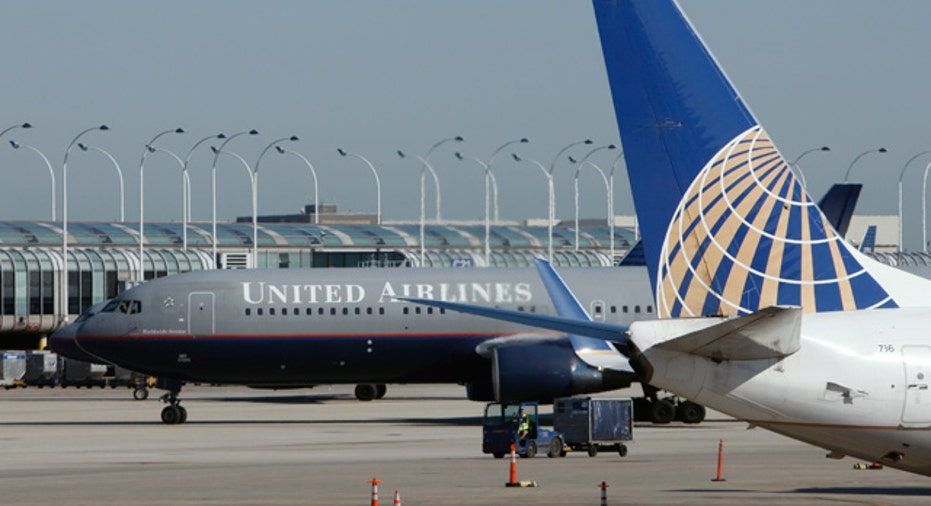Don't let Frequent Flier Miles Die With You

NEW YORK – My uncle and I were different in many ways, but we shared a love of travel. After he died last March, I learned he had bequeathed me the one thing I would really appreciate - more than 100,000 frequent flyer miles.
The question was: Would the airlines let me use them?
Yes, but it wasn't simple. Calls and follow-up calls to customer service representatives, and faxing necessary documents, took at least an hour for each of his four accounts.
Every year, U.S. travelers rack up as many as 3 trillion frequent flyer miles, according to Randy Petersen, editor of InsideFlyer magazine. As loyalty programs proliferate for airlines, hotels and credit cards, so do the challenges - and rewards - for heirs who inherit these so-called digital assets.
Most travel and credit-card programs allow customers to will their hard-earned points. While the process takes time, the points transferred have given me enough miles to redeem for several domestic flights, plus some magazine subscriptions.
"The value of the assets has reached a point where family members of the deceased feel it's worth spending time to chase down," says Dennis Delaney, a partner at law firm Hemenway & Barnes LLP in Boston, who specializes in estate planning.
Hemenway & Barnes recently exchanged about 1.7 million American Express Co Membership Rewards points held by a deceased client's estate for almost $10,000 in AmEx gift cards. Those cards will be distributed to heirs.
"If you don't do anything, (the value of the points) is going to be lost," says InsideFlyer's Petersen. "But when you're actually able to use them, it's a pretty good feeling."
Here's how to bequeath or inherit loyalty program award points.
CAN'T TAKE THEM WITH YOU
The average U.S. household has signed up for 18 programs, a 2011 survey by LoyaltyOne research firm Colloquy shows. On average, households earned about $622 a year of points and miles, according to a 2011 joint study by Colloquy and reward program technology firm Swift Exchange.
Those who wish to leave hard-earned points to heirs should first decide whether they should be included in a will. Adding it ensures that all possible assets are identified, but may raise legal costs in either crafting the document or executing it. It can also bring unwelcome scrutiny.
"When you put it in the will, you are inviting a taxing authority to ask questions," says Joseph Scorese, an estate planning attorney at Harwood Lloyd LLC in Hackensack, NJ, adding that an inquiry could slow distributions, particularly if the points expired or were used before death.
Still, naming an heir can head off family conflicts, and help executors find and distribute points.
Wells Fargo Private Bank's Estate Services group began including questions about loyalty programs on its estate planning checklist several years ago.
"It would be wonderful if we could administer an estate where the will or trust actually mentioned the miles," said Michael Wernersback, a regional fiduciary manager at Wells Fargo's Estate Services division in Bay St. Louis, Mississippi.
Most experts say it's best to list award programs in a separate document instead of a will. Wills should be "more user friendly and shorter," says Delaney.
However they are documented, include the account number and email address associated with it.
HOOPS FOR HEIRS
A thicket of rules and regulations makes point transfers complex. In my case, the airlines required a copy of my uncle's death certificate and a letter from the executor.
Non-airline loyalty programs appear to have even more restrictions, based on calls made to these companies.
The Marriott Rewards program for Marriott International Inc hotel chain, for example, only allows spouses or domestic partners to inherit points. American Express Co's credit card rewards program requires a call from an executor before it agrees to send a package of required forms. Hilton HHonors points earned from Hilton Worldwide's hotel brands expire after a year of inactivity.
Before you make your first call, have copies of the death certificate, the deceased's loyalty program account numbers, address and email details ready. Be sure you have your own account, into which the awards can be transferred.
While you may not need the will, you'll need a statement from the executor naming a beneficiary, say representatives of loyalty programs at airlines, hotels and credit card companies.
If first you hear "no," try and try again.
"You have to push and go to higher-ups," says Delaney, whose firm's requests to transfer the 1.7 million AmEx points were initially denied.
TAX IMPLICATIONS
The IRS has not issued guidance specifically on airline, hotel or credit card points, saying in an emailed statement that "your gross estate includes the value of all property you own partially or outright at the time of death."
Law firm Hemenway & Barnes will list the $10,000 in gift cards as an asset of the estate.
But it is notoriously difficult to value other kinds of loyalty points. Their value fluctuates depending on whether they are used for hotel stays, gift cards, flights or goods.
Should you just skip the "formalities" of reporting the death and use the miles to, ahem, fly under the radar? Indeed, it's possible to log on as your relative if you have their details, though many loyalty programs prohibit the practice.
InsideFlyer's Petersen, who says he has about 17 million miles combined in his airline and hotel accounts, has not included those miles in his estate planning.
Instead, "my lovely bride knows where I keep this little (list) and I want her to treat her girl pals to a trip to Cabo."



















